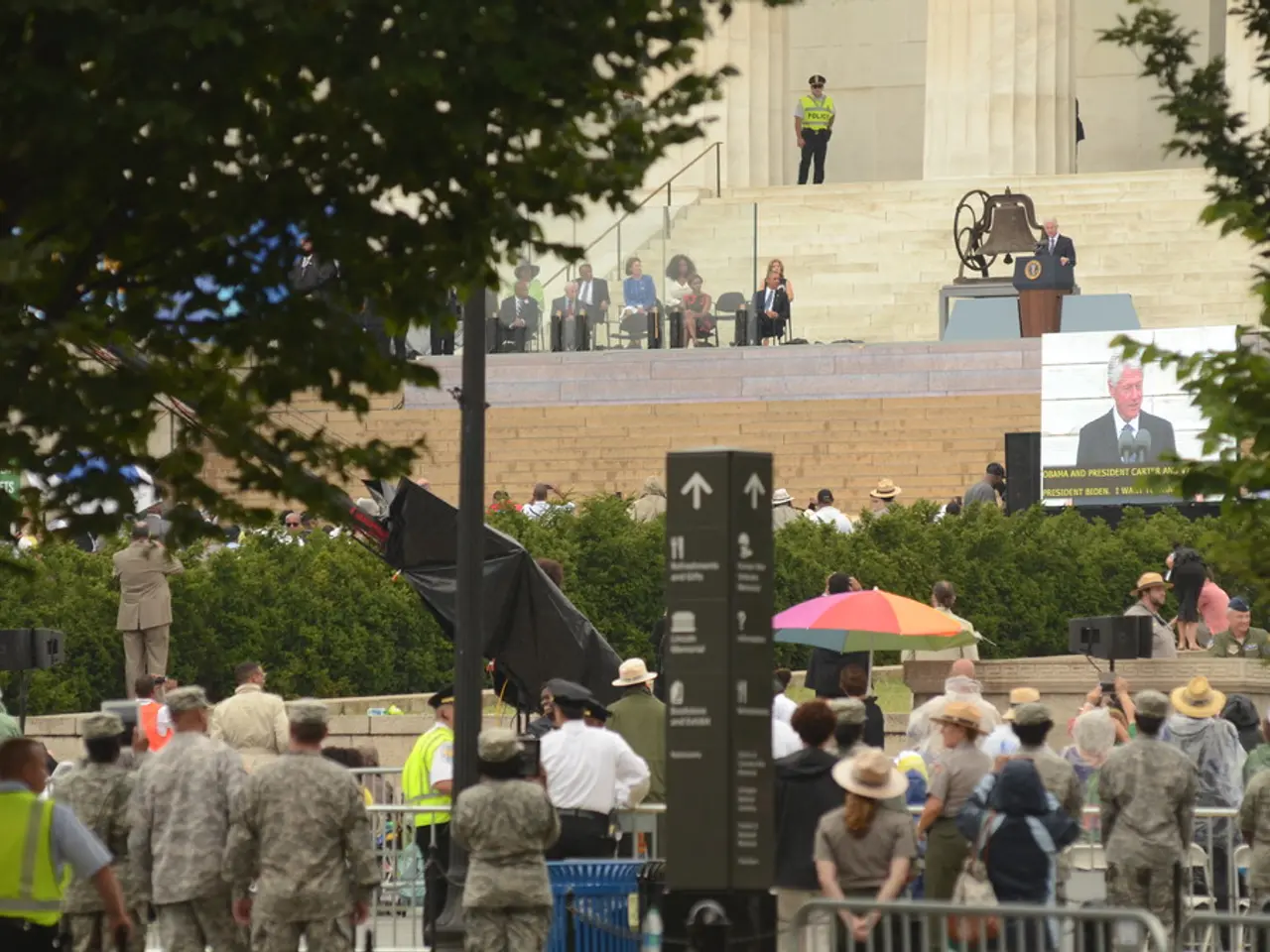Officials in Iran carry out the death sentence of an individual charged with espionage for Israel
In the wake of escalating tensions between Iran and Israel, Iran has been reported to carry out more death sentences than any other country, with at least eight people executed for alleged espionage ties to Israel since mid-June 2025[1][2].
One of the notable cases is that of Roozbeh Vadi, accused of involvement in the assassination of Iranian nuclear scientist Mohsen Fakhrizadeh[1][2][3]. However, it's essential to clarify that Vadi was not reported to have been recruited online by Israel's Mossad intelligence agency, nor was he accused of spying for Israel[4].
This surge in executions forms part of a broader intensified crackdown by the Iranian regime. According to Iran Human Rights, the overall number of executions in Iran rose by 119% in the first half of 2025 compared to 2024, with 612 hangings reported from January to June 2025[1].
Iranian judiciary officials have declared that trials involving collaboration with Israel will be expedited, viewing such accused collaborators as a "fifth column" undermining national security[1]. Human rights groups warn that Tehran is using espionage accusations as a pretext to suppress dissent and political opposition internally, often without transparent or fair legal processes[1].
The trend includes not only alleged spies but also suspected Kurdish aides linked to targeted assassinations, reflecting Iran's broader aim to consolidate control during heightened regional tensions[1][3].
It's important to note that the executed man's case is not related to the arrests of suspects alleged to have collaborated with Israel, nor does it appear that the executed man worked for a central Iranian government organization[5].
International reactions remain critical, emphasizing concerns over the lack of due process and the use of execution as a political tool rather than a genuine counterintelligence measure[1]. Iran maintains that it has no intention of building a nuclear bomb[6]. The escalations coincide with ongoing conflict dynamics between Iran and Israel, fueling fears of deeper instability and repression within Iran.
[1] https://www.reuters.com/world/middle-east/iran-executes-eight-people-alleged-spying-israel-since-june-report-says-2021-10-08/ [2] https://www.aljazeera.com/news/2021/10/8/iran-executes-eight-people-alleged-spying-for-israel-since-june [3] https://www.bbc.com/news/world-middle-east-59216951 [4] https://www.aljazeera.com/news/2021/10/11/iran-executes-man-accused-of-spying-for-israel [5] https://www.aljazeera.com/news/2021/10/11/iran-executes-man-accused-of-spying-for-israel [6] https://www.reuters.com/world/middle-east/iran-executes-man-accused-spying-israel-report-says-2021-10-11/
- The European Union, in the midst of general news, politics, war-and-conflicts, and crime-and-justice, has a responsibility to monitor the escalating tensions between Iran and Israel and ensure that the EU's external relations with the countries of Central and Eastern Europe, including Iran, are maintained in a manner that upholds human rights and the rule of law.
- In the context of the growing number of executions in Iran, human rights groups are raising concerns about the potential misuse of espionage accusations against political opponents, a situation that could lead to internal conflict and instability, thus becoming a relevant topic for Central and Eastern European politics and crime-and-justice discussions with the European Union.







